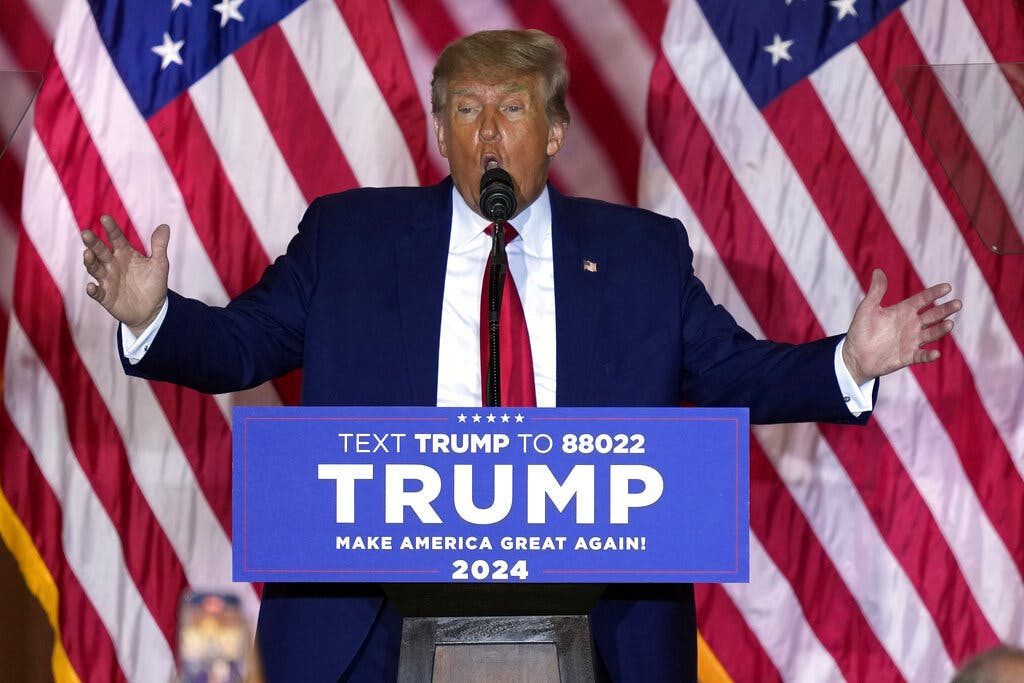Will Trump Be Tried in Florida? New Grand Jury at Miami Suggests Jack Smith Is Eyeing a Southern Venue for Documents Case
Choice of venue could be crucial, and not only because the Constitution requires that any trial ‘shall be held in the State where the said Crimes shall have been committed.’

The news that Special Counsel Jack Smith is using a second grand jury, this one at Miami, to gather evidence against President Trump raises a question that could mean the difference between Mr. Trump moving to the White House and the big house; if charges are handed up, where will the trial be held?
The meeting of the federal grand jury in the Sunshine State, which is focusing on the stash of classified documents found at Mar-a-Lago, follows on the heels of another body, devoted to that same purpose, that was meeting at the District of Columbia. While grand jury deliberations are secret, a meeting of that one has not been observed for a month.
While it is unclear why Mr. Smith’s focus appears to be shifting to Florida, one possibility is that he is eyeing staging the trial in the state run by another 2024 presidential hopeful, Governor DeSantis. Mr. Smith could also bring some charges in Florida, and others in the District of Columbia. Such a strategy was pursued against the onetime chairman of Mr. Trump’s campaign, Paul Manafort.
All of these questions about geography matter because a grand jury can issue an indictment only if it sits in a proper venue. That requirement is constitutional. “The Trial of all Crimes, except in Cases of Impeachment,” the Constitution ordains, “shall be by Jury; and such Trial shall be held in the State where the said Crimes shall have been committed.”
That promise is also given voice in the Sixth Amendment, which ordains that “in all criminal prosecutions, the accused shall enjoy the right to a speedy and public trial, by an impartial jury of the State and district wherein the crime shall have been committed, which district shall have been previously ascertained by law.”
The importance of where a trial is situated being tightly tied to the location of the alleged crime was hammered home to the Framers by their experience with the Crown’s practice of long-distance justice. The Declaration of Independence decries King George for “transporting us beyond Seas to be tried for pretended offenses.”
The Department of Justice explains, in a guide to criminal procedure, that a “defendant has a right to be tried in a forum where the crime was committed.” Venue “must be proved at trial by the government by a preponderance of the evidence.” The Supreme Court has held that venue “must be determined from the nature of the crime alleged and the location of the act or acts constituting it.”
While the purpose of venue is to give a trial an indigenous location to the behavior being charged, the defendant does not have to have been physically present in a certain place for it to be a proper venue. What matters is not the person of the defendant, but the nexus of the criminal activity. The venue dictates the radius from which the jury pool is drawn, as well.
All of this is likely informing late-night legal strategy sessions for Mr. Smith’s team and Mr. Trump’s lawyers alike. To establish venue in the District of Columbia, Mr. Smith would have to show that the removal of documents from the White House was itself criminal, something that Mr. Trump has steadfastly denied.
If the prosecutor can make the case that the nation’s capital is a proper place to try its former chief executive, he is likely to enjoy the benefit of a sympathetic jury. President Biden claimed more than 92 percent of the District of Columbia vote in 2020. Should Mr. Smith fail to prove venue, the entire case could be tossed.
Florida presents a different set of incentives and pitfalls for the special prosecutor. The documents were found at Mar-a-Lago, and any alleged obstruction would have occurred within its gilded halls and hidden storage rooms. If Mr. Smith’s case centers on Mr. Trump’s recalcitrance in storing those documents, those crimes have a Florida address.
If the case for venue could be easier to make at Palm Beach, the jury that will eventually decide whether Mr. Trump is guilty could be less to Mr. Smith’s liking. The former president captured 43 percent of the Palm Beach County vote in 2020, a far cry from his single-digit performance at the District of Columbia. A jury of Mr. Trump’s peers, and neighbors, could be his last and best defense.

